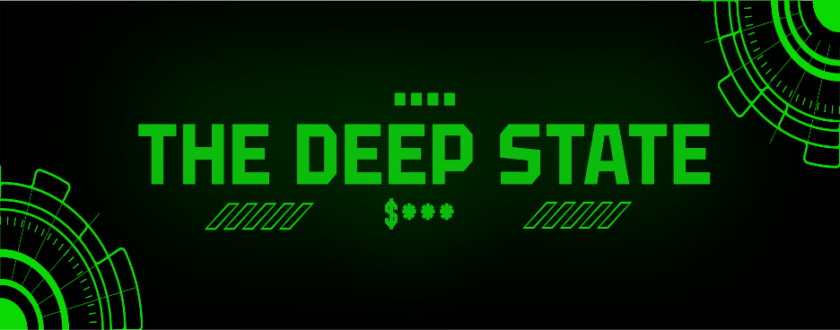The emergence of blockchain technology and its related features and benefits have started being widely used and adopted in the last two years. With a range of different use cases, blockchain technology has been adopted across several industries, with prominent examples being in the world of supply chains and finance. In fact, blockchain technology is regarded as the safest, most reliable and efficient way of transferring and storing value, without any third-party involvement. While people of all ages are starting to realize the untapped potential of blockchain integration, the concept of blockchain technology is increasingly being accepted by a large chunk of the world’s population, most notably, the Generation Z.
Generation Z and blockchain
Generation Z are individuals who are born after the mid-1990’s till the mid-2000s. It makes up a large chunk of the population, as indicated by a 25% population share of the current U.S. population. Generation Z consists of digital natives. The reasons behind their increasing reliance on technologies such as blockchain can be attributed to a variety of reasons. Trust is a major factor here, as they do not fully trust today’s centralized institutions and systems, citing government intervention as one of the main reasons. Thus, a direct correlation has been seen between the generation’s lack of trust and their high rate of adoption of crypto assets and other blockchain use cases.
Let’s also look at other socio-economic reasons why blockchain is increasingly being adopted by this generation.
• New and efficient way to store value: Over the years, the ways to store value and investment has been changing drastically on the global landscape. Unlike prior generations that introduced gold, and equities as a viable investment option, Generation Z individuals increasingly look for decentralized options in today’s world. This can directly be attributed to the general distrust of Generation Y towards any centralized entity, citing third-party involvement as a major reason. This is also considered by many analysts as the driving force behind the future of crypto-assets and their mainstream adoption.
• Lack of trust on traditional financial institutions: There is a general consensus among Generation Z members causing them to steer away from traditional financial options. Many individuals have already lived through major economic crashes throughout the world, such as the financial crisis of 2008 which involved centralized institutions. As such, individuals today are weary of involving themselves with banks and other government- controlled financial institutions. In a world that is increasingly being digitized to develop complex but efficient financial systems, digital trust has become increasingly important. Generation Z, thus, prefer blockchain integration which is creating digital scarcity and native digital trust on a global level.
• A new way of crowdfunding: The emergence of start-ups on the global stage has highlighted the importance of crowdfunding methods. Through blockchain, raising capital via token sales or initial coin offerings has presented individuals with an almost foolproof method of capital generation. This is because of the existence of a degree of safety and trust, where contributions made go directly to the intended party of the project.
• Online anonymity: Online anonymity is a highly controversial feature of blockchain technology, and has been described as a “double-edged sword’ by many industry experts. Online anonymity is increasingly being preferred over open social media interactions for a variety of reasons. Industry analysts believe that the demand for online anonymity and security of personal information will only grow exponentially as Gen Z grows into maturity.
• Freedom of speech: Freedom of speech is another important reason why many individuals across the world are preferring blockchain. Individuals view the transmission of information through blockchain networks as an important requirement, especially in countries with high levels of public censorship. By tapping into the decentralized nature of the blockchain, information can now be transferred without the fear of censorship, no matter where in the world it originates from.
Patient Z Is bringing blockchain to healthcare
Healthcare is one of the most crucial sectors that need blockchain technology, because of the enormous presence of intermediaries in almost all healthcare systems around the world. It is widely believed that blockchain technology has the potential to change the healthcare industry, placing the patient, at the center of the system by providing added security, privacy and interoperability to health data. This new model of healthcare aims to touch on the following three crucial aspects:
• Consistent representation of authorization for electronic health information access
• Ubiquitous network infrastructure with added security
• Verifiable identity and authentication of all participants involved
Although at present there are no existing systems that address all of the above criteria entirely, that is expected to change in the near future. Popular advanced examples include projects such as MedRec, an MIT blockchain project aims at managing electronic medical records for efficient authentication, confidentiality as well as data sharing. As the growth of blockchain adaptability increases, healthcare is thought to be one of the first sectors which will be benefited in the long run.
Even though blockchain is increasingly being integrated into several industries of the world, the decentralized approach of blockchain technology will be crucial for the future of healthcare. Blockchain will create transparency, which in turn, will help removing data silos, speed up processing, and provide security and a high level of interoperability to deliver a seamless patient experience. As mentioned before, blockchain projects like medRec aim to place the patient at the center of the system, which is highly compatible with the requirements of Generation Z.
As such individuals have a tendency to distrust centralised institutions and systems, the decentralised nature of blockchain-based healthcare would gradually appeal more to the newer generation. Unified healthcare platforms can be thus shared among participants, with significant cost reduction, secure interactions, cheaper and faster transactions.
Donika Kraeva is communications manager at the Dentacoin Foundation in the Netherlands, developing blockchain technology for the global dental industry.




